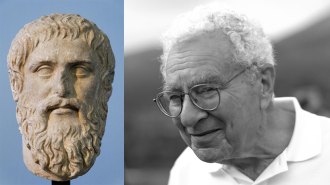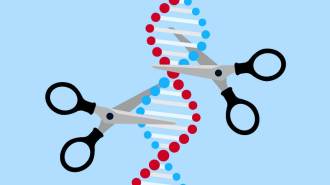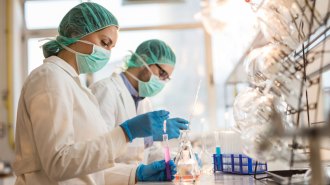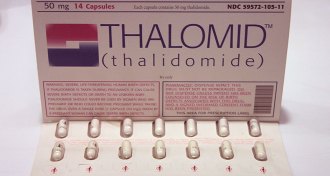Science & Society
Sign up for our newsletter
We summarize the week's scientific breakthroughs every Thursday.
-
 Science & Society
Science & Society‘End Times’ explores the catastrophic events that could kill us all
A new book looks at the threats that could wipe out humankind and what can be done to counteract them.
By Kyle Plantz -
 Earth
EarthClimate misinformation may be thriving on YouTube, a social scientist warns
Analyzing 200 climate-related videos on YouTube shows that a majority challenge widely accepted views about climate change and climate engineering.
By Sujata Gupta -
 Science & Society
Science & SocietyMurray Gell-Mann’s ‘totalitarian principle’ is the modern version of Plato’s plenitude
The ancient principle of plenitude is reborn in the modern belief that whatever can exist must exist.
-
 Science & Society
Science & SocietyWe’re closing down our comment section
Science News’ forthcoming website won’t feature comment sections on stories, but instead will invite e-mail feedback so readers can make their voices heard.
By Mike Denison -
 Life
LifeCRISPR enters its first human clinical trials
The gene editor will be used in lab dishes in cancer and blood disorder trials, and to directly edit a gene in human eyes in a blindness therapy test.
-
 Science & Society
Science & SocietyWith nowhere to hide from rising seas, Boston prepares for a wetter future
Boston has armed itself with a science-driven master plan to protect itself from increasingly inevitable storm surges and rising seas.
-
 Science & Society
Science & SocietyHow the 5 riskiest U.S. cities for coastal flooding are preparing for rising tides
The five U.S. cities most at risk of coastal flooding from rising sea levels are in various stages of preparedness.
-
 Archaeology
ArchaeologySatellites are transforming how archaeologists study the past
In ‘Archaeology from Space,’ Sarah Parcak takes readers on a lively tour of the past, and archaeology of the 21st century.
By Erin Wayman -
 Science & Society
Science & SocietyPublic trust that scientists work for the good of society is growing
More Americans trust the motives of scientists than of journalists or politicians.
By Katy Daigle -
 Science & Society
Science & SocietyYou’re only as old as you perceive yourself to be
Editor in Chief Nancy Shute discusses how people’s attitudes about aging can impact our physical health.
By Nancy Shute -
 Life
LifeGiving cats food with an antibody may help people with cat allergies
Research by pet-food maker Purina aims to disable the major allergen carried in cat saliva, a protein called Fel d1.
-
 Health & Medicine
Health & Medicine50 years ago, a drug that crippled a generation found new life as a leprosy treatment
In 1969, a drug that crippled a generation found new life as a treatment for leprosy.